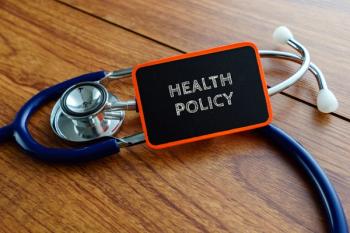
Panelists at the Community Oncology Alliance Payer Exchange Summit 2024 agreed that overcoming health care challenges will depend heavily on collaboration and active engagement from multiple stakeholders in the policy and regulatory process.

Skylar is an associate editor for The American Journal of Managed Care® (AJMC®) and The Center for Biosimilars®, and joined AJMC® in 2020. She is responsible for covering all aspects of the ever-changing global biosimilar industry and produces content that is accessible and informative for all health care stakeholders.
She has a BA in journalism and media studies from Rutgers University. You can connect with Skylar on LinkedIn.

Panelists at the Community Oncology Alliance Payer Exchange Summit 2024 agreed that overcoming health care challenges will depend heavily on collaboration and active engagement from multiple stakeholders in the policy and regulatory process.

Sophia Humphreys, PharmD, director of formulary management at Sutter Health, discusses how group purchasing organizations (GPOs) influence integrated delivery networks (IDNs) and hospitals in making formulary decisions, including the adoption of biosimilars.

Steve Pickette, PharmD, BCPS, explains that artificial intelligence (AI)–driven formulary analysis can significantly enhance the efficiency and accuracy of drug selection processes by rapidly compiling and analyzing evidence.

JT Lew, PharmD, MBA, highlights that the primary challenges for patients with multiple sclerosis (MS) in accessing prescribed medications include dealing with the shock of the diagnosis, navigating complex health plan benefits and out-of-pocket costs, and experiencing delays due to insurance barriers.

Celltrion's adalimumab-aaty biosimilar is now accessible for all Costco members, while Amgen sues Samsung Bioepis over the latter’s denosumab biosimilar candidate, and GlycoNex progresses its denosumab biosimilar SPD8 to phase 3 trials.

The FDA approved Sandoz’ Enzeevu, the fourth aflibercept biosimilar to be approved for Americans with age-related macular degeneration and other retinal eye diseases.

A study demonstrates the value of incorporating protein signatures in creating more advanced prediction tools for patient outcomes.

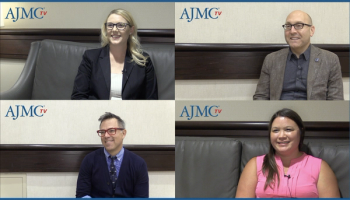
Various speakers comment on why meetings like the Society for Pediatric Dermatology (SPD) 2024 Annual Meeting are important for the advancement of pediatric dermatology.
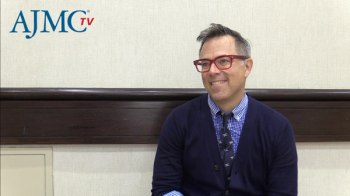
Timothy Caulfield, JD, research director of the Health Law Institute at the University of Alberta, discusses strategies for building trust, overcoming cultural and language barriers, and enhancing interdisciplinary collaboration in pediatric dermatology at the Society of Pediatric Dermatology conference.
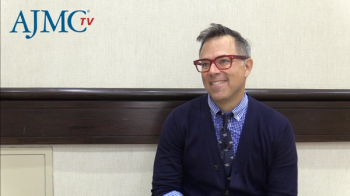
Timothy Caulfield, JD, research director of the Health Law Institute at the University of Alberta, takes a look at the major sources spreading dermatology misinformation to children, including social media.

Nichole Halliburton, APRN, CNP, a family nurse practitioner at the Cincinnati Children's Hospital Medical Center, explains the ways that patient education, parents and caregivers, and emerging technologies can help improve the quality of pediatric dermatology care.

Rebecca Flynn, MSN, APRN, CPNP-PC, a nurse practitioner (NP) at Children's Mercy Kansas City Dermatology, explained the roles that NPs and advanced practice providers (APPs) can fulfill in ensuring the efficiency of triage systems in a pediatric dermatology clinic.

Kelly Harris, APRN, an advanced practice registered nurse at Cincinnati Children's Hospital Medical Center, discusses using mobile care units to deliver dermatology care and education to underserved communities and how health systems can implement them.

At the Society for Pediatric Dermatology annual conference, Faye Brown, MSN, APRN, FNP-BC, a family nurse practitioner at the University of Colorado School of Medicine, highlights how telemedicine efforts can be utilized within dermatology triage systems to better care for pediatric patients.

James Treat, MD, goes over some of the ways food can impact patients' atopic dermatitis, as well as the pros and cons of elimination diets to mitigate food-related triggers.
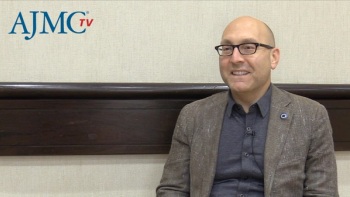
Peter Lio, MD, a dermatologist and clinical assistant professor at Northwestern Feinberg School of Medicine, discusses strategies for managing pediatric atopic dermatitis and how proper management can impact the disease course.

Jennifer Miller, MD, a pediatric endocrinologist at Lurie Children's Hospital, discusses the challenges of systemic corticosteroid use in children, such as adrenal suppression and growth delays.

Timothy Caulfield, JD, discusses the sessions he's most looking forward to at this year's Society for Pediatric Dermatology annual meeting, including his talk on overcoming misinformation in pediatric dermatology.

Donanemab-azbt is the first and only amyloid plaque-targeting therapy approved for adults with early symptomatic Alzheimer disease.
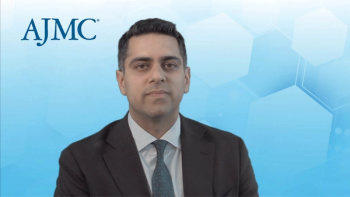
Shawn Kwatra, MD, dermatologist, John Hopkins University, recounts his study assessing the use of nemolizumab in prurigo nodularis presented at the American Academy of Dermatology conference.

An Italian review highlighted the potential of AI to enhance early diagnosis and treatment of hidradenitis suppurativa, though challenges such as data privacy, algorithm bias, and interpretability must be addressed to fully leverage AI's benefits in dermatology.

The FDA approved the first 2 biosimilars referencing aflibercept (Eylea). However, patent litigation has left it unclear when the biosimilars will come to market.

A recent study found significant regional disparities and a decline in inpatient dermatology encounters and providers across the US from 2013 to 2019, highlighting the need for increased support and improved access to specialized dermatologic care.

A recent study applied machine learning to medical and pharmacy claims data to develop a model for predicting hidradenitis suppurativa (HS) diagnosis, highlighting the potential for improved understanding of HS underdiagnosis on a health care system level.

According to a review, recent progress offers hope in the form of treatments, such as combination therapy that utilizes surgical and nonsurgical methods, for individuals with facial acne scars.

A literature review has found that ultraviolet radiation, rising temperature, and air pollution could be possible climate-related influences on skin cancer rates.
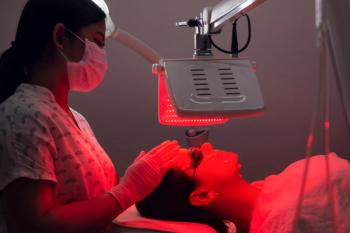
A recent study found that patients with actinic keratosis experienced more pain during red light photodynamic therapy (PDT) than simulated daylight PDT, emphasizing the need to understand patient experiences for better treatment decisions.

In a recent study, secukinumab therapy demonstrated adequate safety and efficacy profiles, offering potential benefits for patients with severe hidradenitis suppurativa (HS) who found adalimumab intolerable.

Patients with hidradenitis suppurativa (HS) in Canada often wait long periods of time to receive an HS diagnosis and receive evidence-based therapy, highlighting the need for increased interdisciplinary education on HS management.

259 Prospect Plains Rd, Bldg H
Cranbury, NJ 08512
© 2025 MJH Life Sciences®
All rights reserved.
